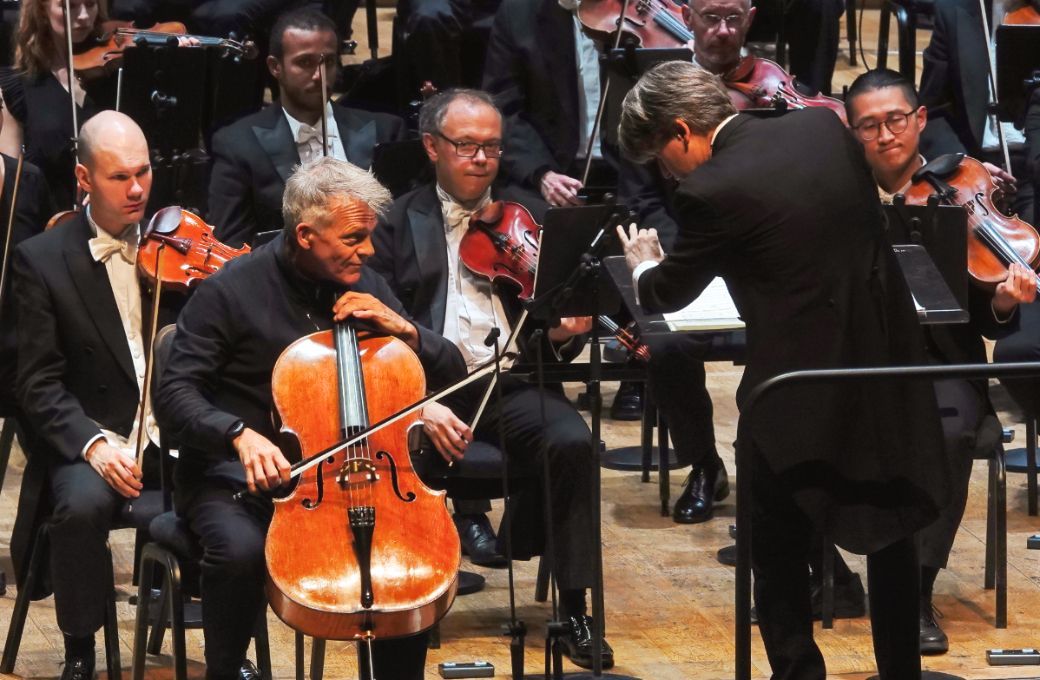This concert was a bittersweet affair after the announcement that Daniele Rustioni is to leave the Ulster Orchestra at the end of this season. His tenure has been marked by some highly memorable performances, this one being no exception. To a packed Ulster Hall, the audience were given an evening of very fine music-making in an inventive French and Russian programme.
Beginning with Dukas’ ever popular The Sorcerer’s Apprentice, it become clear there was nothing novice-like about Rustioni’s vision which had freshness and impact. The strings had a brightness and the woodwinds cut through the textures. Throughout, the bassoons had the most infectious fun, with some raspy contrabassoon playing initiating a giggle or two. We revelled in the energy in this all too familiar work.
Two Russian items were either side of the interval. Prokofiev’s Sinfonia Concertante, written in 1938, is a rarity and an unusual choice for a season opener. A substantial work, in three movements, it is not as memorable as Prokofiev’s other concertos and it needs an artist like Alban Gerhardt to focus the attention. The technical requirements are very demanding with many changes of position and multiple stops, Gerhardt flawless in his execution. Without faltering, he maintained the rhythmic precision and drive to the end. The more lyrical moments were shaped gently, Gerhardt shifting colours subtly to complement the orchestral palette. In the first movement, the balance between cello and orchestra was superb, both conductor and soloist working strongly together; in the second, the unity between all the musicians was electrifying, especially in the more rhythmic passages. In the third movement Gerhardt and Rustioni focused on the climax, building intensity and excitement to peak perfectly in a performance nothing short of spectacular. As an encore, Gerhardt delighted in the Prelude from Bach’s Sixth Cello Suite.

Borodin’s Polovtsian Dances opened the second half. Rustioni’s tempo choices ensured there was strong contrast in each dance, always with a sense of movement. In the more expressive Girls’ Dance, Rustioni avoided any sentimentality, keeping the pulse strictly measured. He gently shaped the cantabile lines beautifully, one of the best performances I’ve ever heard.
Closing the night was the Second Suite from Ravel’s Daphnis et Chloé, which was utterly beautiful from beginning to end, Rustioni balancing the orchestra perfectly, with every line crystal clear. The Lever du jour was radiantly warm, watery and highly evocative; the Pantomime seductive and atmospheric, with exceptional woodwind playing. The Danse générale impressed with its technical brilliance.
This was a strong programme on paper and even better in execution. For an orchestra with many new faces on the platform — with extra players and deputies – the playing was exceptional. Every player gave Rustioni exactly what he wanted. While we already lament Rustioni’s departure, we have a full season of concerts to relish. Belfast is in for a wonderful year of music-making.


